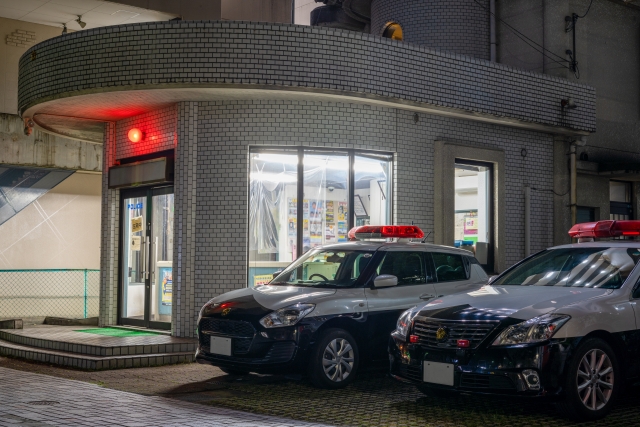Introduction
Recently, a foreign visitor asked me about Japan's koban (police boxes) and how they differ from police stations in other countries. This question inspired me to write this article, as koban are a unique and integral part of the country’s law enforcement system. The visitor also found it curious that "Police Box" is translated as "koban" rather than something more directly related to "police station." Unlike typical police stations, koban serve as small, community-based outposts where officers provide assistance, patrol neighborhoods, and ensure public safety. This article explores the history, evolution, and role of koban in modern Japan.
Origins of Koban
The term "koban" comes from the Japanese words "交替" (koutai, meaning "rotation") and "番" (ban, meaning "watch"), referring to the system where officers take turns patrolling and managing local security. The roots of this system trace back to the Meiji era (1868–1912) when Japan modernized its police force.
Key Milestones in Koban History
- 1874: Establishment of "junsha tonsho" (巡査屯所), the first local police stations in Tokyo.
- 1881: Introduction of "koban-sho" (交番所), where officers rotated shifts to maintain a continuous police presence.
- 1890: The term "koban-sho" was replaced with "hashutsujo" (派出所), but the term "koban" remained in common usage.
- 1994: The official name "koban" was reinstated, standardizing the terminology across Japan.
The Role of Koban Today
Unlike larger police stations, koban focus on community-based policing, bridging the gap between law enforcement and local residents. Their primary functions include:
1. Providing Assistance and Public Safety
Koban officers help locals and tourists with:
- Directions and lost property recovery
- Responding to minor crimes and disturbances
- Offering emergency assistance
2. Neighborhood Patrols
Officers conduct foot and bicycle patrols to ensure the safety of their assigned areas. This visible presence helps deter crime and builds trust within the community.
3. Crime Prevention and Investigation
While major crimes are handled at larger police stations, koban play a crucial role in:
- Gathering intelligence on local security threats
- Preventing petty crimes
- Assisting in early-stage investigations
4. Community Engagement
Koban officers regularly interact with local businesses, schools, and residents to maintain good relationships and address safety concerns proactively.
Koban vs. Police Boxes in Other Countries
While "police boxes" existed in other countries, such as the UK (e.g., the iconic blue TARDIS-like Police Box), Japan’s koban remain operational and serve a vital role in daily life. Unlike traditional police stations in the U.S. or Europe, koban provide an approachable and localized security presence.
Conclusion
Japan’s koban system is an excellent example of community-oriented policing, balancing security and public service. Whether assisting a lost tourist, conducting patrols, or handling minor incidents, koban officers play a crucial role in maintaining Japan’s reputation as one of the safest countries in the world.
Next time you visit Japan, don’t hesitate to approach a koban officer for help. They’re there to assist you with a smile!
